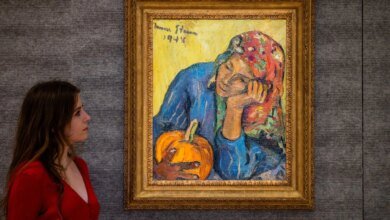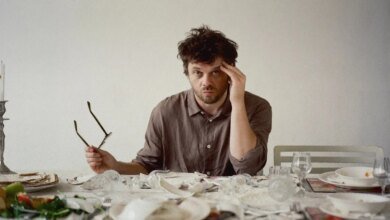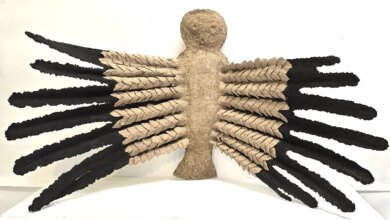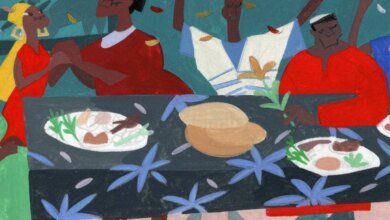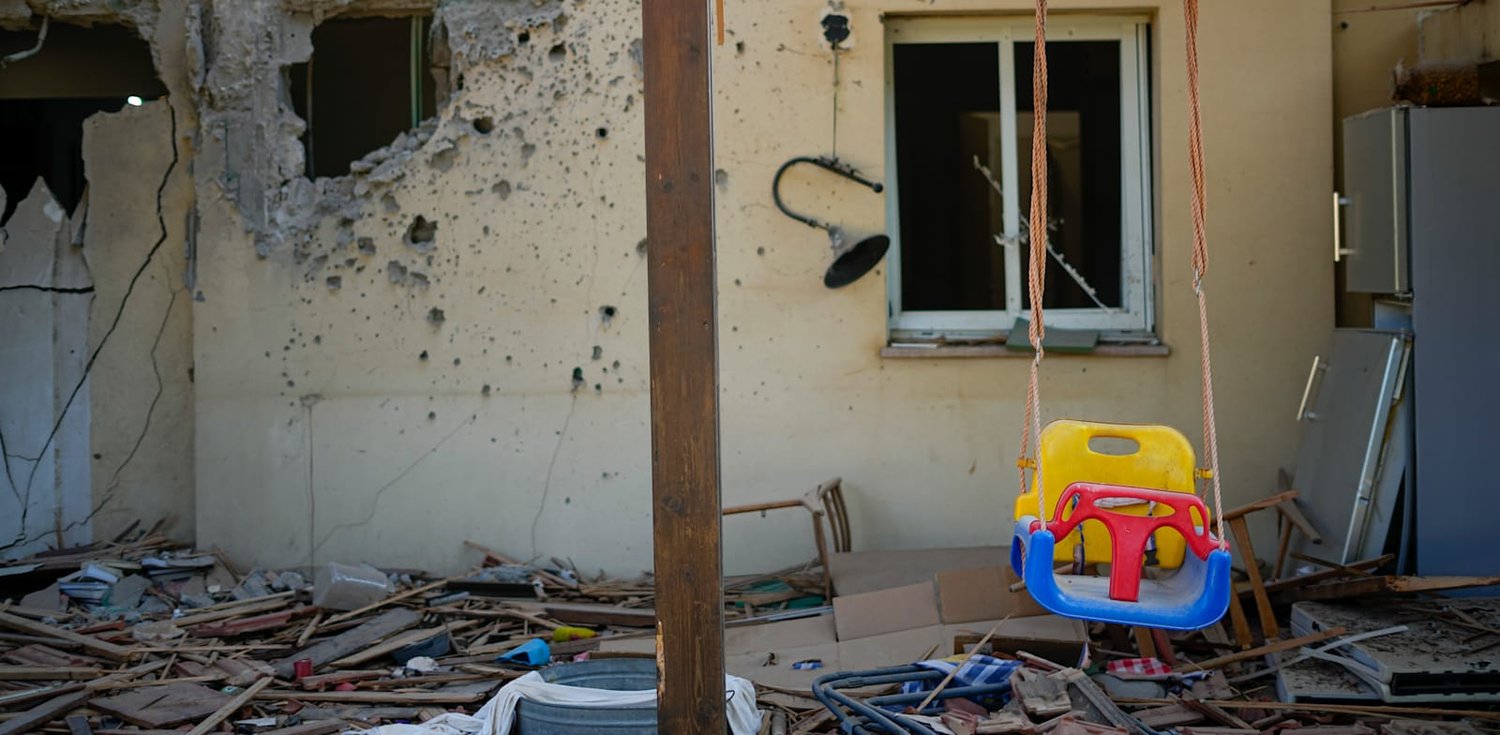
As part of our ‘Urgent Voices’ series, in which key jewish cultural figures respond to the continuing crisis following the 7 October attacks, we hear from a handful of Hebrew poets
In these difficult times, when war seems to erase all words, a group of contemporary Hebrew poets have found solace in poetry. The artform raises difficult questions that sometimes have no answers and what remains is the intrinsic intent of the questioning. The following poems were written as part of a response to the events of 7 October. Their purpose is to evoke emotion and a fervent hope for peace.
Translations by Jacob Eisenberg, Tal Nitzan, Sarit Ofek and Joanna Chen.
Eli Eliahu
Alibi
The day it happened we sat in a café. We can
vouch for each other. Then we went home the usual way.
We passed by neighbors who can testify. And then, as always, we watched some TV and went to bed. Where we stayed
the entire night. On occasion we rolled over, but overall, we slept
in peace (love, we thought, covers all sins).
If they ask about the child set on fire, we have a perfect
alibi. Our eyes did not see, nor did our hands shed this blood.
Eli Eliahu
Guilt
All summer cannons thundered
And children ran for their lives.
And what was I doing?
Writing poems,
alone,
at night.
And they had not the power
to save
even
a single child.
Eli Eliahu has published three collections of poetry and is the winner of the Israel Prime Minister’s Prize in Poetry and the Brenner Prize.
Diti Ronen
Headstone
A woman conceives
herself births
herself raises herself
a bone of her own.
Later she discovers
chromosomes
splattered on the walls.
Someone gathers them,
wraps them in a tallit,
places a headstone over them.
Dr Diti Ronen is an award-winning poet. She has published 12 collections and her work has been translated into multiple languages.
Hadas Gilad
The Tooth Fairy
What should I ask the tooth fairy for? says my daughter.
She wants a trendy dollhouse.
Maybe ask for peace? I suggest
(sorrow in my heart surging, spilling to the floor).
I don’t want to waste a wish on peace,
she protests, fairies don’t really exist,
we both know that, and you
can’t make peace, right?
I bury my head in my hands.
No, I admit. If only I could.
I cry. Incompetent. If only I was a fairy
but I’m just her mother
and I have no tidings, and I won’t lie to her
or cushion her steps with empty promises
nor will I tell her
about girls her age
held hostage
kidnapped from their beds
breathing or not
breathing underground,
girls who also have a first wobbly tooth.
Incompetent. If only I was a fairy.
If only all wishes were as easy
as warm air
rising a degree or so
above us –
she dismisses me with a wave of her hand,
my down-to-earth daughter.
I tell her a dollhouse won’t fit under the pillow
But a doll is definitely an option.
I’m her mother. And there are kidnapped girls
and I have responsibilities
and incompetence.
The wishes drop down like dead birds.
Hadas Gilad is a poet, author and poetry editor, and winner of the Minister of Culture Award.
Tehila Hakimi
The Future
“Give me back my broken night”
The Future, Leonard Cohen
Out of sight
Through thick smoke
The future is shrouded, and I wait
Counting the days, inside my belly
And they, in the belly of the earth, under fire
Their future shrouded, and I wait, counting the days
Summer still here, stagnating, long days through November,
Summer is still here but will end, as it does, and after it the cold season
I count the days and they – in the belly of the earth, underground, hard to know
If it’s winter or summer, where Mom is, or Dad, the future out of sight, the future shrouded
And I wait, counting the days in my own belly, tossing from one side to another, rolling around, about to fall
Tehila Hakimi is a poet and writer and has published five books. Her latest, Hunting in America, is due to be published in 2025 by Penguin.
Sarai Shavit
Instinct
To tuck in, to leave a light on at night.
To promise the missile will not fall nearby.
To close eyes
To punch the wall
To pick at the scab
To face the posters
And promise you won’t be kidnapped.
That yes, for sure they give them
Water to drink. That no, they don’t cook
Them their favorite food.
To admit it’s tough to breathe
Underground.
To tuck in, to leave a light on at night.
To promise the missile will not fall nearby.
To pour wine into a coffee mug
To rub ointment on a sting
To wipe your eyes dry
To crumple the edge of the sky
To find between the sheets
A pair of wide eyes
To promise
False promises
every night and night.
Sarai Shavit is a writer, poet and TV presenter. Her poetry is award-winning and has been translated into German, English, French and Malayalam. She has won the Tel Aviv Municipality Poetry Prize and the Goldberg Prize for Literature.
Maya Weinberg
A Safe Space
Most horrible
Are those empty talks
Repeating
The headlines
Over and over again
What was said already
In the news
And has nothing new
No one knows
What will be
But all are talking
To be heard
To hold an opinion
To feel control
To hold on
The mind can’t tolerate
Even a little bit of what happened
Shrapnel of truth
Are enough to mortally wound
In this war
The heart is the front.
Maya Weinberg is a poet and veterinarian who specialises in bats. She is currently living in Cambridge, UK, to undertake her post-doctorate studies.
Yonatan Berg
Musings
Each window in the street is a ship, moving slowly.
The eternal lighthouse of the moon.
My bag is always by the door like a woman about to give birth
To new life beginning at the railway station.
My go-you-forth flower opens within me at every season,
Inversely, inversely, it waters me.
Even an office can turn into a faraway state
With the stubborn flow of a climbing plant as it grows.
Shoes soften the soil and music softens the air.
To walk quickly at six in the evening
To teach the body to soften the soul.
Most of the time, we must remember, we wear slippers.
Like a conquering nation I expelled the children:
The boy I once was talked to a whale –
A hill and upon it a mixture of macadam/rocks and moon.
This is how a person leaves the world: forgets more than remembers
In order to rise up easily and disappear.
Yonatan Berg is the youngest winner of the Yehuda Amichai Prize for Hebrew Poetry and has won several other literary awards. He has published five books of poetry, one memoir and two novels.
Tal Nitzan
Cisterns
Our hands did not drain the water
our hands did not blow up the wells
our hands did not pierce the pipes
did not smash the reservoirs
the purification plants
did not empty the cisterns
and at the sight of the little girl
descending the ghost steps
orphaned from the home
that we did not destroy
one hand holding on to her baby brother
the other carrying an empty plastic container
to be filled at the distribution point
$4 per one cubic meter
our throats are not ablaze with a thirst
more scorching than any thirst.
After a photo from the series Gaza, Eau Miracle (Gaza, Miracle Water) by Massimo Berruti.
Tal Nitzan is an award-winning Israeli poet, novelist and translator. Her poetry has been widely published in various translations.
Source link

